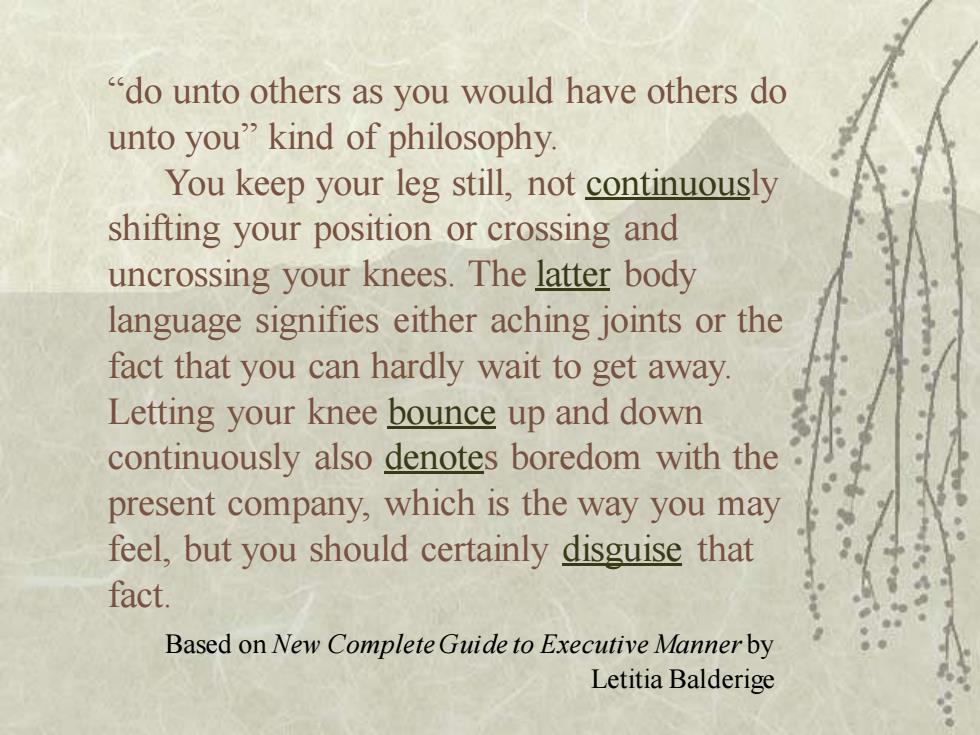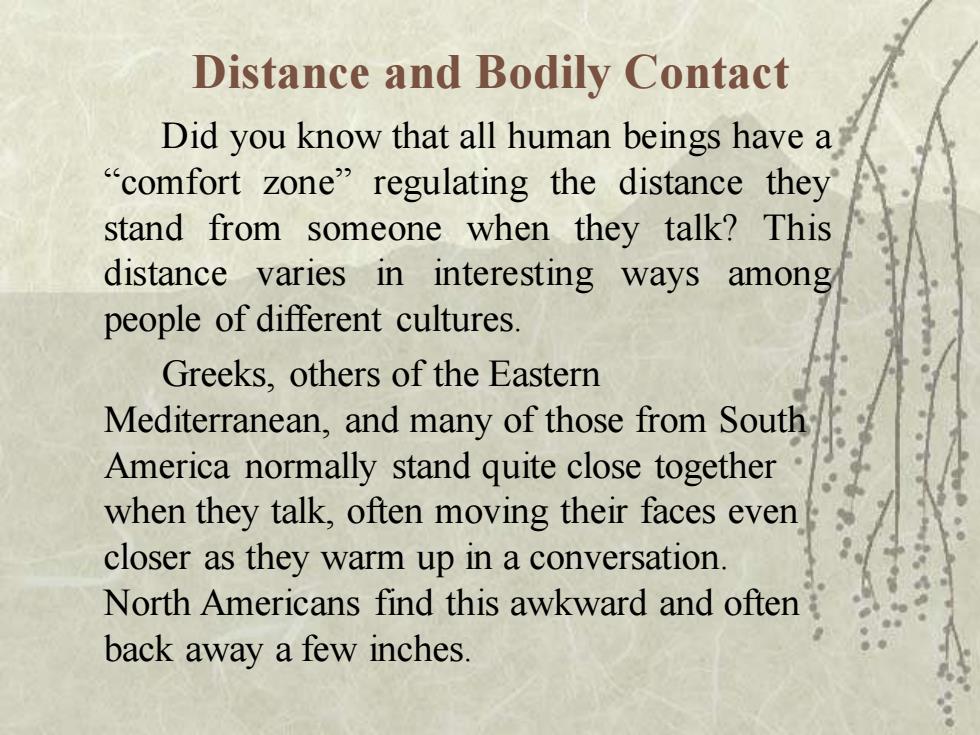
"do unto others as you would have others do unto you"kind of philosophy. You keep your leg still,not continuously shifting your position or crossing and uncrossing your knees.The latter body language signifies either aching joints or the fact that you can hardly wait to get away. Letting your knee bounce up and down continuously also denotes boredom with the present company,which is the way you may feel,but you should certainly disguise that fact. Based on New Complete Guide to Executive Manner by Letitia Balderige
“do unto others as you would have others do unto you” kind of philosophy. You keep your leg still, not continuously shifting your position or crossing and uncrossing your knees. The latter body language signifies either aching joints or the fact that you can hardly wait to get away. Letting your knee bounce up and down continuously also denotes boredom with the present company, which is the way you may feel, but you should certainly disguise that fact. Based on New Complete Guide to Executive Manner by Letitia Balderige

Distance and Bodily Contact Did you know that all human beings have a “comfort zone”regulating the distance they stand from someone when they talk?This distance varies in interesting ways among people of different cultures. Greeks,others of the Eastern Mediterranean,and many of those from South America normally stand quite close together when they talk,often moving their faces even closer as they warm up in a conversation. North Americans find this awkward and often back away a few inches
Distance and Bodily Contact Did you know that all human beings have a “comfort zone” regulating the distance they stand from someone when they talk? This distance varies in interesting ways among people of different cultures. Greeks, others of the Eastern Mediterranean, and many of those from South America normally stand quite close together when they talk, often moving their faces even closer as they warm up in a conversation. North Americans find this awkward and often back away a few inches